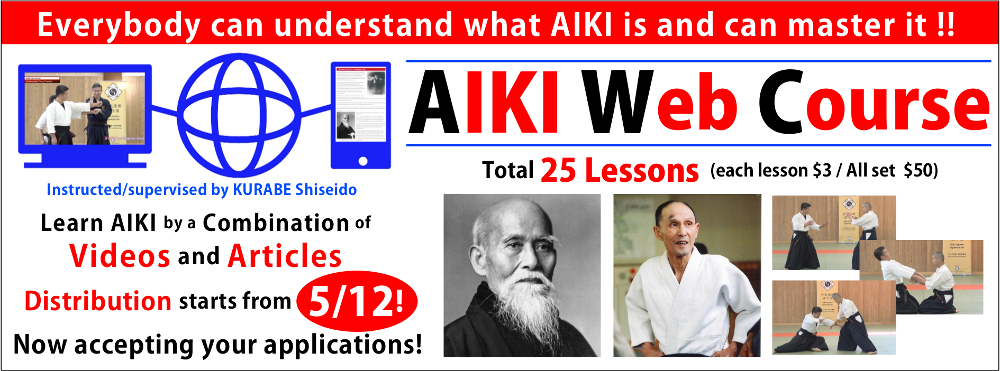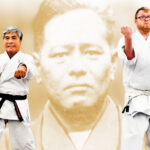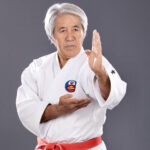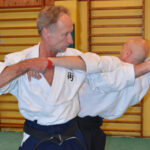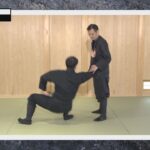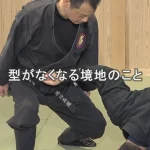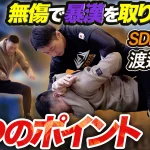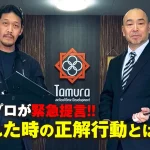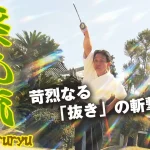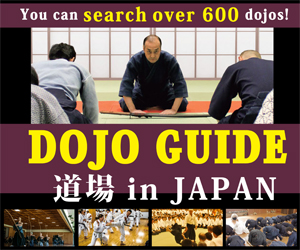Politeness: as one of the most important factor which should be attained by Budo training
1. What is REISETSU
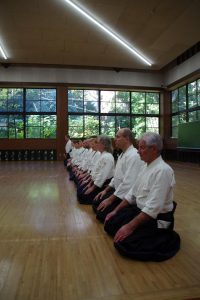 So far as Budo aims to be utilized as a mean for human beings to establish a complete harmony of physical strength, stability of mind and nobleness of spirits, REISETSU is strictly regarded as one of the most important factor which should be attained by Budo training. For the most of other fighting systems in the world, it is exclusively most important over all to attain physically high skill level (strength) to defeat one’s enemies, all the other factors are ignored as not useful or even harmful factors to achieve their goal. Accordingly this fact distinguishes Budo from all the other fighting system of out of Japan.
So far as Budo aims to be utilized as a mean for human beings to establish a complete harmony of physical strength, stability of mind and nobleness of spirits, REISETSU is strictly regarded as one of the most important factor which should be attained by Budo training. For the most of other fighting systems in the world, it is exclusively most important over all to attain physically high skill level (strength) to defeat one’s enemies, all the other factors are ignored as not useful or even harmful factors to achieve their goal. Accordingly this fact distinguishes Budo from all the other fighting system of out of Japan.
However, in most of the cases it is wrongly understood or not properly understood how one should perform this REISETSU among many of non-Japanese Budo training people. People consider they should pay enough attention, in some cases, even over performed way to their teachers and they think it is REISETSU. But it is not proper way to show up REISETSU.
REISETSU should be performed for both sides, from Deshi(student) to Sensei(teacher) and Sensei to Deshi vice versa, also one to the other third persons whom one might get contact. So, REISETSU should be performed for everybody and every occasion.
There are some teachers, even in Japan, who are used only to receive REISESTU from his students but he never performs REISETSU to his students. Such person could not be respected as a good Budo teacher at all. He is just an arrogant and physically strong guy but not a real Budo-ka.
2. How REISETSU is understood and performed out of Japan
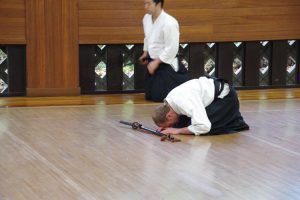 Out of Japan, mostly in Asian countries, this REISETSU concept is accepted without friction and understood rather correctly. But in western world like U.S.A. and Europe, it seems like people have difficulty to understand and perform REISETSU correctly and properly.
Out of Japan, mostly in Asian countries, this REISETSU concept is accepted without friction and understood rather correctly. But in western world like U.S.A. and Europe, it seems like people have difficulty to understand and perform REISETSU correctly and properly.
First of all they cannot accept this concept easily. They claim why they have to bow their teachers like servant. This bowing (御辞儀:Ojigi) is done to show up students’ respect and thanks to their teacher. At the same moment students bow to their teacher, a teacher also bows his head to his students to show his thanks for coming to his lesson. In this way, REISETSU is showed up from both sides.
I heard one story from a Jujutsu teacher in Poland. He saw once a person who self-named a Ju-Jitsu Soke in Poland gave certificates to his students. He lets his students sit (Seiza) and bowed him deeply while he was standing without bowing his head even a little to his students. When he saw this he was wondering if it is the way done in Japan because it looked very strange for him. Of course, I immediately denied it. I said that such impolite manner we can never do in Japan like sitting person by Seiza bow deeply to a standing person. It is very rude. Someone who has misunderstood the way of Japanese politeness promotes such silly and absurd things by falsifying the name of traditional Japanese Jujutsu. I cannot help feeling anger.
Next, even they accept to perform this REISETSU to their teacher, they do not think they should perform REISETSU to the other people, like elder people, teachers in the other schools etc. who have enough reasons to be respected. This is the exact point that many of European BUDO training people miss and nowadays I can see the same misbehaviour even among Japanese BUDO training people. They pay a keen respect to their own teacher and perform REISETSU correctly but they never pay any respect and accordingly perform no REISETSU to the same level teachers as their own teacher in the other schools (RYU) or other field. They even tend to believe that they could show up their stronger respects to their own teachers by ignoring other teachers in the other styles.
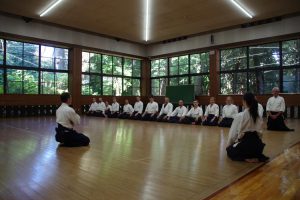
Here I show some examples.
Since Jan 2009 I have been writing my series of article titled as “Budo report from Europe” to a Japanese Budo Journal titled HIDEN. And I have been looking for Budo-ka whom I can/want to introduce in my article.
Several years ago I got a contact with one young Budo-ka, aged middle of 30s, who teaches Japanese KORYU JUJUTSU in his country. I exchanged several correspondences with him and I decided not to introduce him because of his arrogant attitude which cannot be a correct attitude as a real Budo-ka. He respects only his own teacher and be polite only to him, which I could see immediately. I called him as XX-sensei, because so far as I introduce him as Budo-ka who teaches Budo and raise his students, I should pay a respect and should show my REISETSU towards him. But he did not show any his REISETSU towards me from the beginning till the end and continued calling me as Kurabe-san. I am at that time 62 years old and I had been already busy with training Budo for 15 years before he was born. I have been training much longer years than his age. So, it was quite natural that he shows his respect towards me. But for this person it is only one person i.e. his Japanese teacher whom he wants to call as “sensei” and any other Budo-ka are same level as he.
Besides, he was so much convinced with his “high level” in Budo. I can never expect such strong self-confidence for such young person with only around 10 years short Budo training experience. Such being the case, I totally lost my intention to introduce him in my article.
The similar cases often happened around me. Once, a person who teaches AIKI JUTSU in his country got contact with me. He called me as sensei at the beginning, but when I named his sensei in Japan as XXX-sensei, he started calling me as Kurabe-san. It is my politeness, REISETSU, to call his teacher as sensei considering the length of his Budo carrier, whom he calls himself as ROSHI (old teacher) who is actually younger than me, but from it he might have understood that I was in the same level as he because we both call the same person, i.e. his teacher as sensei. So, I lost my intention to continue my correspondence with him any longer.
There is an example which shows reversal case. Around 4 years ago I met one Budo-ka who is a master of Iaido in a quite high level. Although he is much younger than I, but because I noticed his high level immediately I started call him from the beginning as “sensei”. Although he called me as Kurab-sensei, he never allowed me to call him as sensei. He apologized his way with explaining that he had not yet reached such enough high level being called as sensei. So I had to call him as “san” but in my mind I called him as sensei with my deep respect.
Now after reading till here, it should has become clearer how REISESTU should be performed for which case to whom. I hope every European Budo-ka shall notice the correct and proper way to perform REISETSU by reading this essay.
At the end of this article, I would like to express my thanks to Mr. Sean Leather, my Jujutsu student comes from U.S.A., for his taking time to have corrected my Japanese English to formal English.
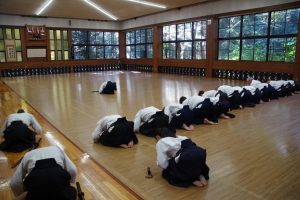
Makoto KURABE – SHISEIDO
representative of
AIKI JUJUTSU GYAKUTE-DO
website: www.gyakutedo.org/wp
mail: apply@gyakutedo.org
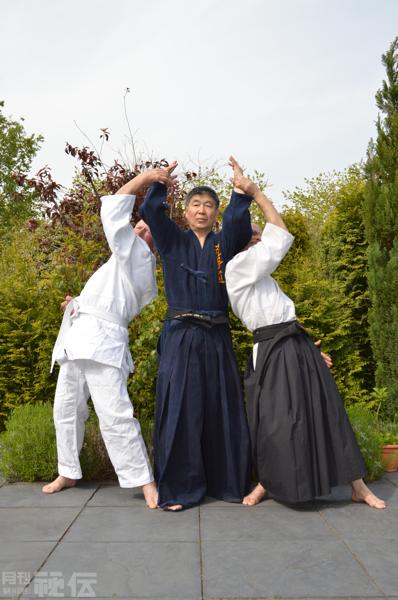 Text by Kurabe Makoto Shiseido
Text by Kurabe Makoto Shiseido
Born in 1950. When he was in his 30s, he began learning Gyakute-do Jujutsu, which was derived from Hakkoryu Jujutsu in the 1970s. Just before reaching the age of 40, he moved from Japan to The Netherlands and continued to master and develop Gyakute-do. In October of 2013, after adding the system of Aiki-Jutsu that he developed himself, he transformed Gyakute-do into Aiki-Jujutsu Gyakute-do, and became 2nd Soushi, grand master, of Gyakute-do. After retirement, he left The Netherlands and began promoting Aiki-Jujutsu Gyakute-do both in Japan and in Poland as his main pursuit. He is also teaching his Gyakute-do to Budo fan in the world via corresponding course.
You can read Original Japanese text here!
礼節:武道修行で得られる最も大切なことの一つ
1. 礼節とは
武道の修練が、肉体的あるいは物理的な強さと気持ちの安定、精神の気高さとの調和による人間としての完成を求めるためのものである以上、礼節は武道修行で達成すべき最も重要な要素の一つとして強く認識されるべきものである。 世界中にある数多の格闘技にあっては、敵を倒せるために圧倒的に優位となる肉体的あるいは物理的な強さを得ることが最も重要なことであるから、それ以外のことはその究極の目的を達成するためには不要、あるいは妨げとすらなるとして軽視されているのに比べると、これは日本武道が誇りとすべき特色と言え、この点こそが日本武道とそれ以外の格闘技とを区別する重要な点となる。一方、日本以外では武道を修行する人たちの間で、必ずしもこの礼節が正しくもしくは適切に理解されているとは言えない気がしてならない。
日本以外では礼節は自らの先生に対して払うもの、それもしばしば必要なレベルを通り過ぎて過剰なくらいに払うものと受け止められている節があるが、それは武道に置ける礼節の間違った解釈だ。礼節は弟子から先生へと同時に先生から弟子へと、更には武道に全く関係の無い第三者に対しても、つまり自分の周囲の誰にでも払わなければならないものである。自分の師のような特定の人相手に払えばよいものではない。先生によっても、しばしば日本ですらそういう人を見かけるが、弟子達にばかり礼節を求め、自分では弟子達に対して一切礼節を払わない人が往々にしているが、そういう人は武道の師として決して尊敬は受けられない。 そのような人は単に物理的に強いだけの尊大な輩であって、武道家とは呼べない。
2.礼節は日本以外でどのように理解され、行われているか
日本以外でもアジアの国々では、礼節の概念は摩擦無しにスムーズに受け入れられ正しく理解されていることが多い。しかし米国や欧州などの西洋社会では、この礼節を正しく理解し、適切に実行することが難しく捉えられているようだ。 第一に、彼らはこの礼節という概念を簡単には受け入れようとしない。彼らは決まって「どうして先生に対して召使がするようにお辞儀をしなければいけないのだ」と文句をつける。 この頭を下げるお辞儀という動作は、召使が主人に対してするのとはことなり、自分に大切なことを教えてくれる先生に対して尊敬と感謝の気持ちを表すためにするものなのだ。弟子達が先生に対してお辞儀をする際には、先生もまた弟子達に向かって、自分の教えを受けに来てくれた弟子達に感謝の気持ちを込めてお辞儀をする。このようにして、礼節はお互いに払うものなのである。
ポーランドで柔術を教えている先生から聞いた話だが、あるときポーランドで宗家を自称する人が自分の弟子たちに認定証を渡す際、正座をさせた弟子たちに立っている自分に対して深々とお辞儀をさせているのを見て、本当に日本ではあのような礼をさせるのですかと尋ねられたことが有る。もちろんそんなことはとんでもないことだと答えたが、このように礼法をはき違えている輩が“宗家”を名乗って日本の伝統柔術の名前を騙ってとんでもないことを流布しているのには怒りを感ぜずにはいられない。
自分の先生に対して礼を尽くすことを受け入れることが出来るようになっても、それ以外のほかの人、例えば自分よりも年長の人、他流派の指導者など、尊敬を受けるのに十分な理由をもっている人たちに対して礼を尽くさなければならないということが分からない人が外国では実に多く見かけられ、昨今では日本ですら見られるようになってしまった。この点こそが、殆どの西洋の武道家たち、そして一部の日本人武道家たちが礼節を間違って理解していることに他ならない。彼らは自分の先生には十分な礼を尽くせるが、例えば自分の先生と同列の他の流派の指導者へは本の僅かの礼節も表すことができない。そうしないことで、自分の先生への尊敬心を強く表せるとさえ信じ込んでいるようにも見える。
その例を以下に示す。
2009年1月から私は日本の武道月刊誌「秘伝」に“欧州武道レポート”という題の連載記事を書き始めた。これは欧州で日本武道を広める活動をしている現地の武道家たちを日本の武道愛好家に紹介する目的で始めたものだ。自身で知っているこちらの武道家は限られているので、人を介して紹介できそうな武道家をずっと探していて、昨年にはこちらで日本の古流柔術を教えている3人の武道家を紹介してもらった。
その内の一人は私が暮らすオランダの隣の国に住む30歳台半ばの若い人で、日本で古流柔術を教えている先生から7年間柔術を習っていて、それを自分が住む町に道場を開いて教えているとのこと。 彼のウエッブ・サイトで内容を事前確認してから、メールを出してコンタクトをし始め、 都合4回メールのやり取りをしてから彼を紹介する気持ちが失せてしまった。 彼は自分が教わっている日本の先生を尊敬する気持ちが強いのは文面からすぐに察することができたが、彼が礼節を払う相手はその先生だけで、他への礼節をまったく払えない人であることがわかった。私は記事で紹介しようとする相手はすべて先生と呼び、彼の日本の先生に対しても勿論先生と呼んだが、彼は最後まで私のことを“さん”付けで呼び、それを改めようとしなかった。彼が生まれたときには私は30歳、すでにその15年も前から武道を始めており、たとえ流派は違っていても、私は彼から“さん”付けで呼ばれる立場にはない。それから柔術はたかだか7年間のキャリアですでに自分を達人のように語る彼の尊大さに、記事を書こうというモチベーションが一遍に失せてしまった。30歳台の若い武道家に私が期待するものは、自分が追い求めるものを真剣に探し続ける真摯な態度であり、すでに大成しきった達人のような態度ではない。
同じような例をもうひとつ挙げる。 フェースブック経由で合気術を自分の国で教えている若い人と知り合った。早速彼のウエッブ・サイトで技を見たが、欧州で合気術もしくは合気柔術と称して指導している沢山の輩と異なり、限られたレベルではあるがきちんとした本当の合気術を披露していた。彼も当然私のことを調べたようで、私のことを当初から倉部先生と呼んでくれた。私の半分程度の年齢なので、それが彼の私に対する礼節と、好感が持てた。 彼が合気術を習っている日本の先生にも興味を覚え、ウエッブ・サイトも拝見したが、私とほぼ同年代、二歳だけ若い彼の先生は大東流堀川派の柔らかい合気術を本当に見事にこなし、またお人柄も大変すばらしく尊敬できる方と思った。その先生への敬意も込めて、彼にその旨をメールで書いて彼の師を先生と呼んだ途端に、彼は私のことを“さん”付けで呼ぶようになった。恐らく私が彼の師を彼と同じように先生と呼んだことで、彼は自分が私と同格であると受け止めて私への呼び方を同僚への呼び方に改めたのだろう。他はどうであれ、この一件だけで彼とそれ以降の交流をも続ける気がしなくなってしまった。
これらとは逆の例を一つだけ挙げます。
数年前に茨城県の龍ヶ崎市でたまたま或る居合道の先生にお会いする機会が有りました。私よりも一回り少々お若い方でしたが、お目にかかって直ぐに並々ではないレベルの高い方と直感し、XX先生とお呼びしたところ、ご本人は私のことを先生付けで呼ばれるにもかかわらず、私には先生ではなく“さん”付けで呼んで欲しいと懇願されます。その理由を「自分が先生と呼ばれるほどのレベルにはまだまだ達していないのを実感しているので」と真剣に説明されました。どうしてもとおっしゃって固辞されるのでXXさんとお呼びしましたが、心の中ではXX先生と呼びながら、その方がこれから武道家として私など想像も付かない高みに上られていく予感を強く感じていました。
ここまで読んでいただければ、読者の皆さんにも武道家としてどのような礼節を身に着けなければならないか、明確に理解していただけたことと思う。武道家として恥ずかしくないよう、正しい礼節を身に着けていただきたいと願うばかりだ。
合気柔術逆手道宗師
倉部 至誠堂
At the starting of AIKI Web Course
Cooperating with BAB Japan Co., Ltd., hereby I start AIKI Web Course in order to realize my long-standing desire to let as many as martial arts fans all over the world have the correct knowledge of AIKI and learn how to practice AIKI.
This course consists of
Part 1 as introductory articles, I explain a wide range of knowledge about what AIKI is, which contains 6 lessons.
Part 2 as main articles, for beginners/intermediate level, I explain how to practice AIKI to master. It contains 24 lessons.
The each lessons will be uploaded on BudoJapan website one by one every week.
I hope as many people as possible will be interested in AIKI and become able to practice it by following this course.
AIKI Web Course 25 Lessons
-
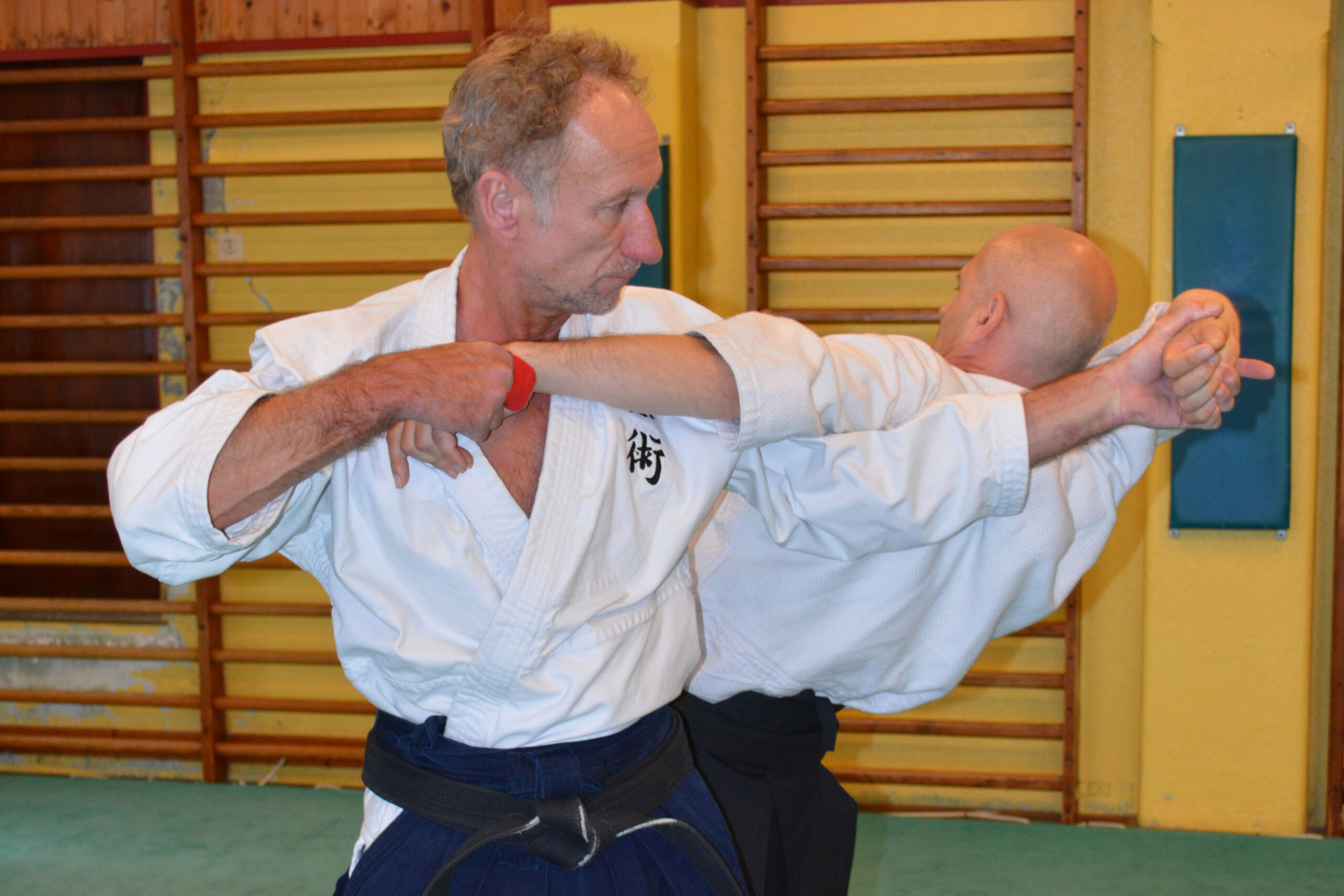
【AIKI JUJUTSU GYAKUTE-DO Series No.5】How you can learn Jujutsu properly
-
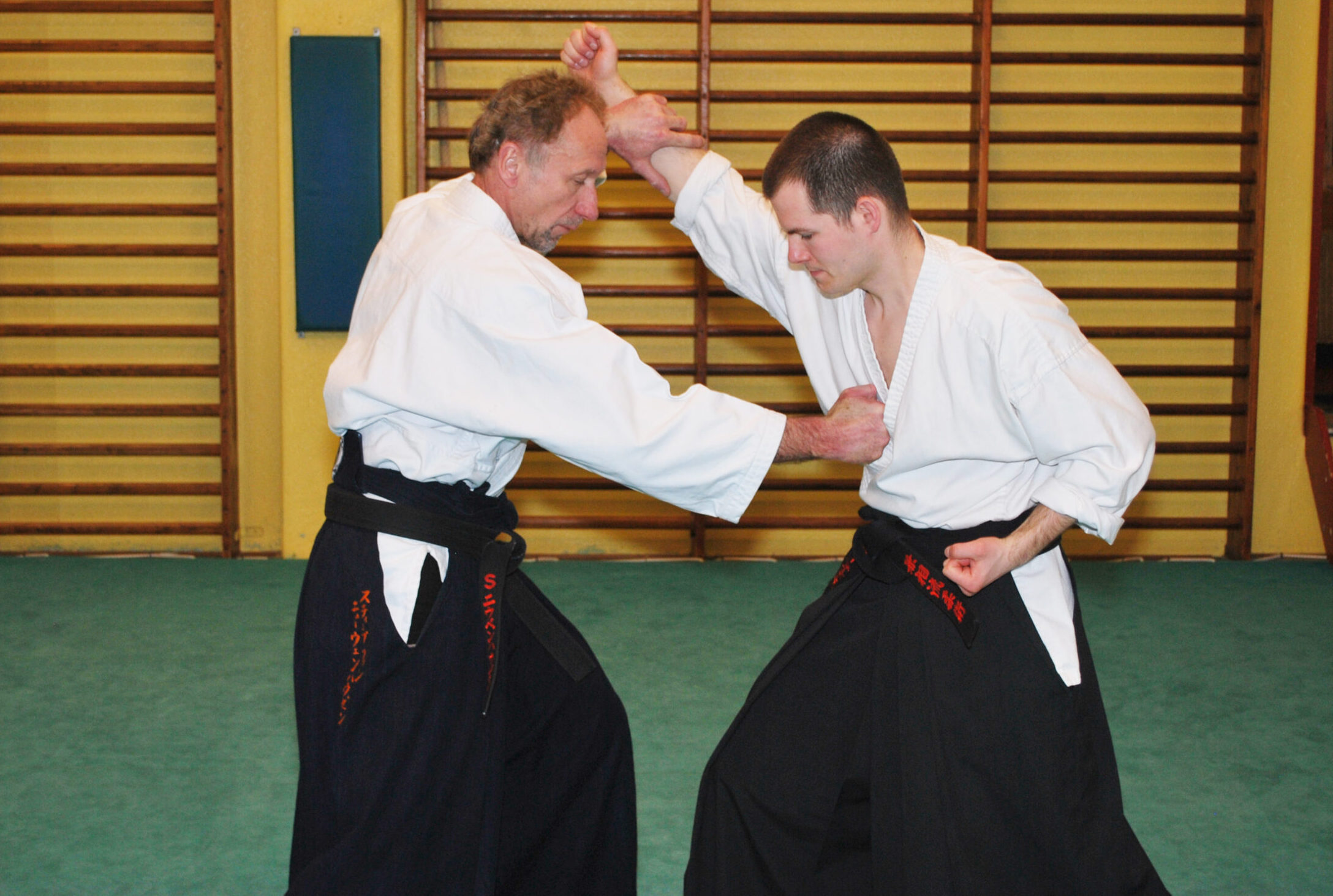
【AIKI JUJUTSU GYAKUTE-DO Series No.4】DAKEN-HO Hit and Kick KATA and AIKI
-
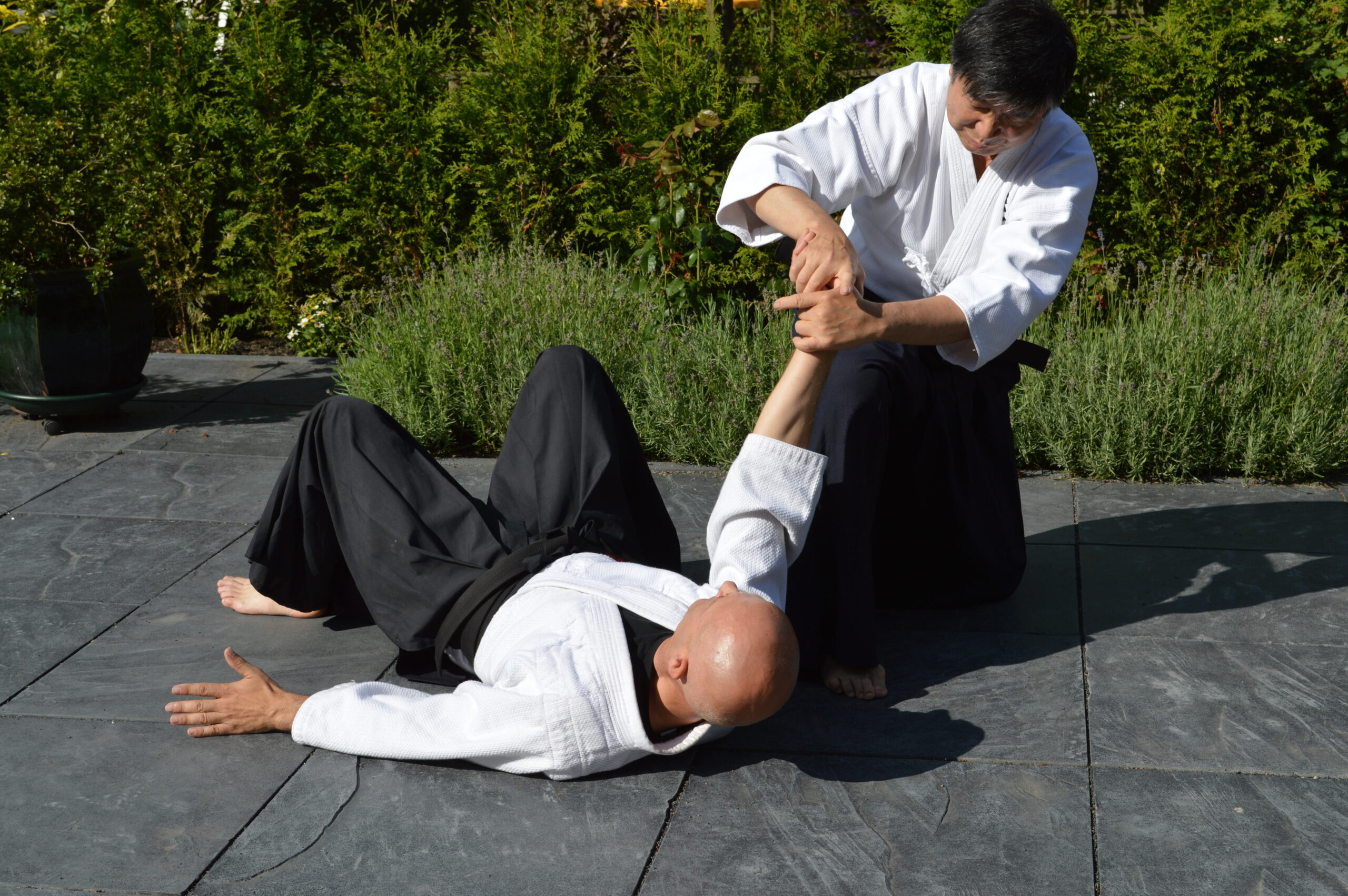
【AIKI JUJUTSU GYAKUTE-DO Series No.3】JUJUTSU WAZA, digest of FUDO
-
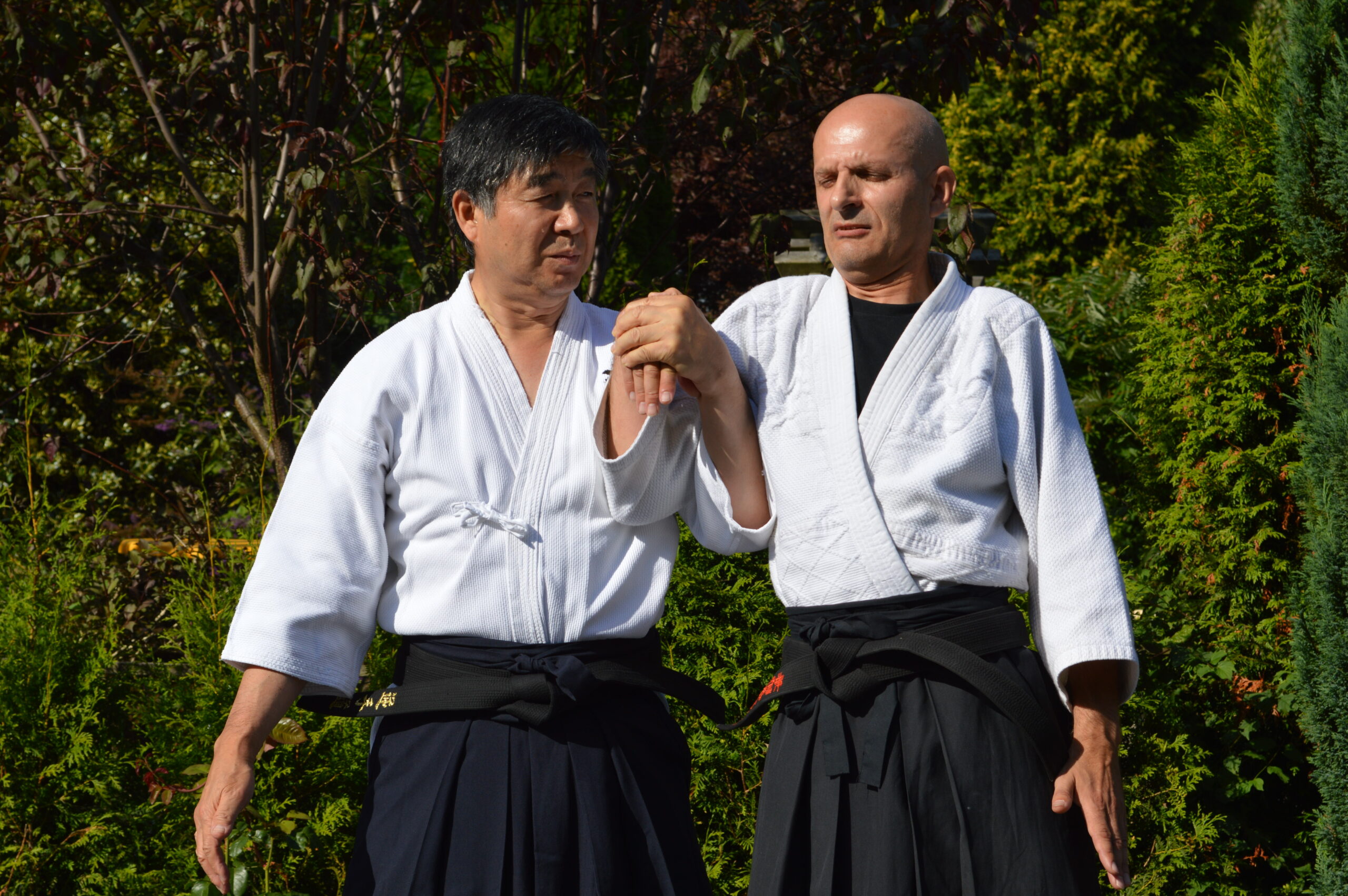
【AIKI JUJUTSU GYAKUTE-DO Series No.2】JUJUTSU WAZA, digest of NUKI, RENKO and NAGE
-
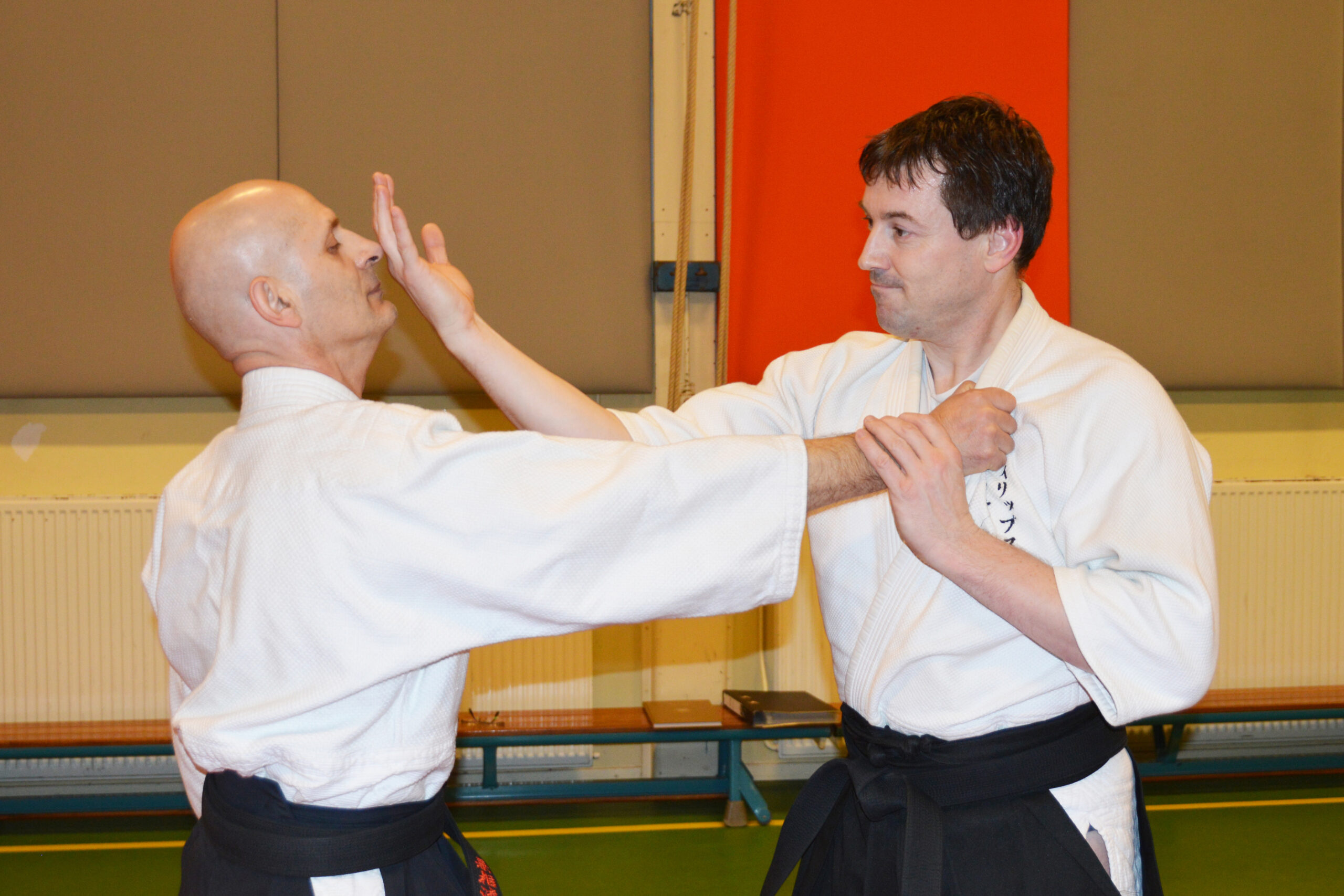
【AIKI JUJUTSU GYAKUTE-DO Series No.1】About GYAKUTE-DO and the digest of its basic techniques
-
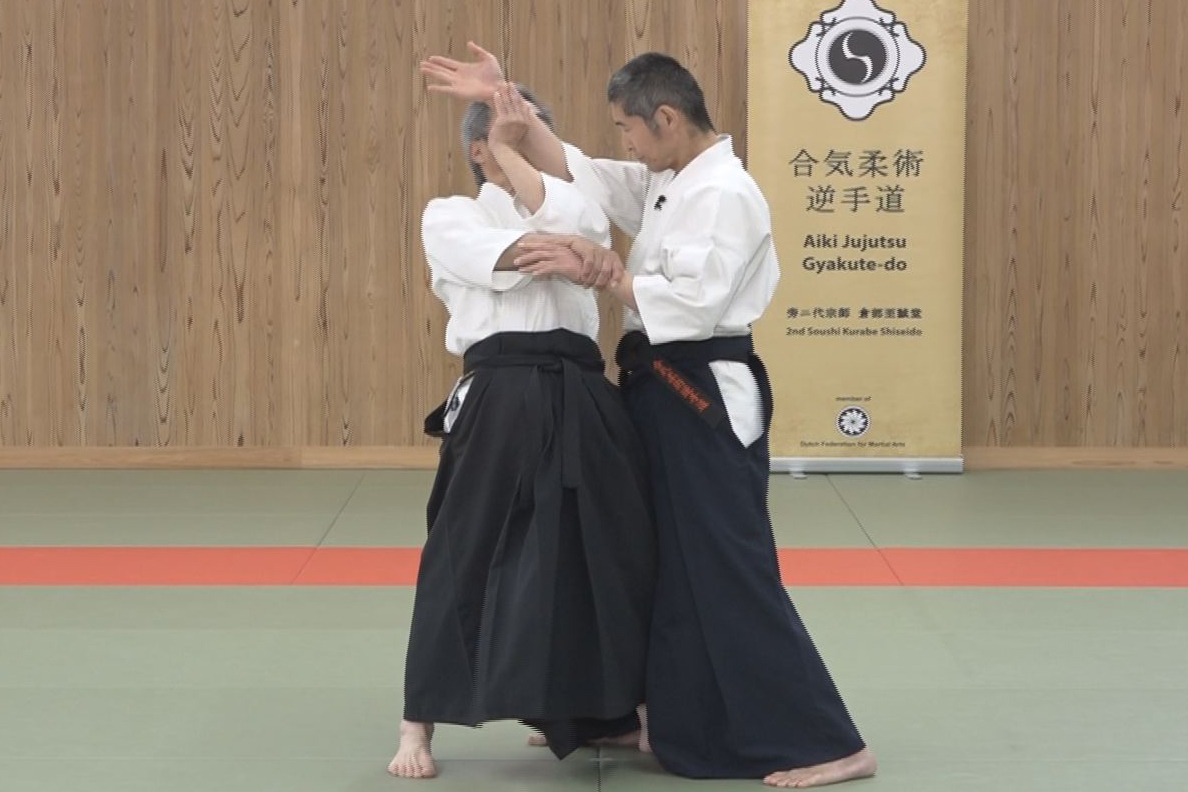
【AIKI Web Course Part 2】Lesson 24 With Comb. of Different Methods #2
-
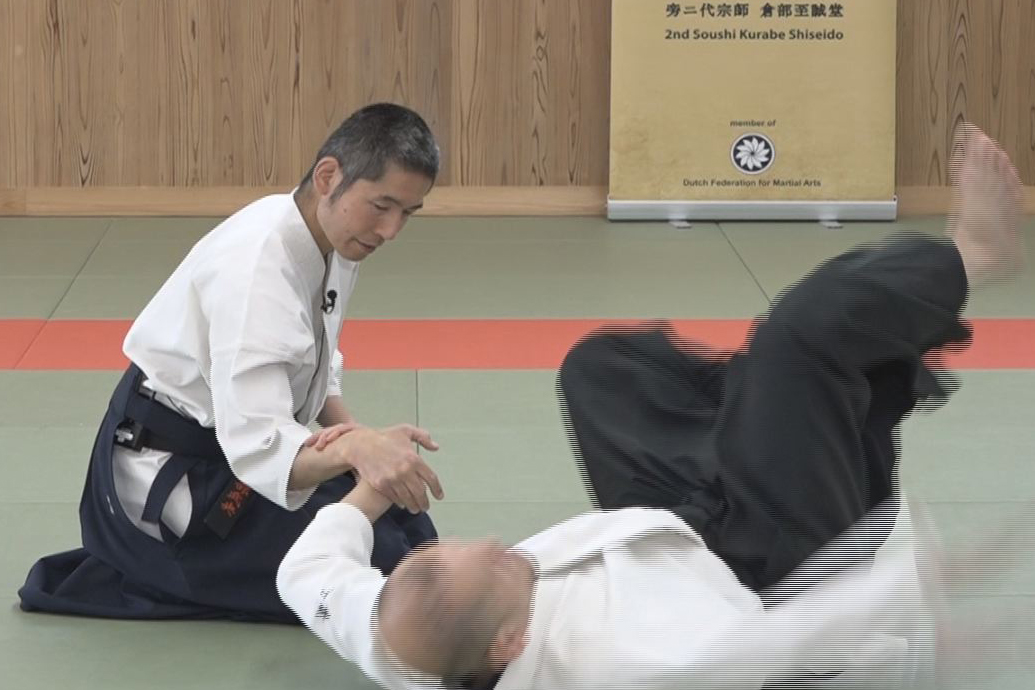
【AIKI Web Course Part 2】Lesson 23 With Comb. of Different Methods #1
-

【AIKI Web Course Part 2】Lesson 22 Advanced Tech. using F. E. method #2
-

【AIKI Web Course Part 2】Lesson 21 Advanced Tech. using F. E. method #1
-
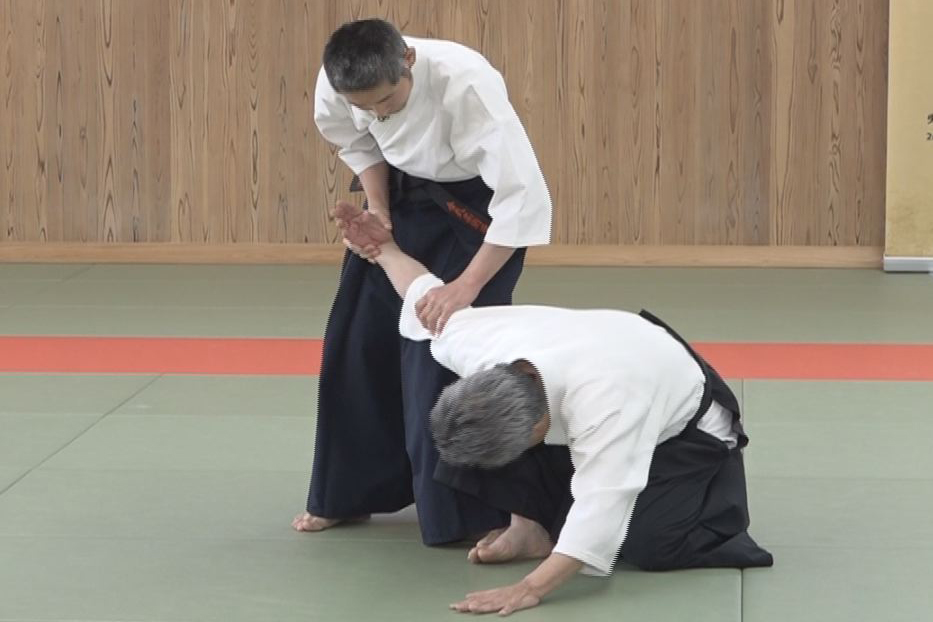
【AIKI Web Course Part 2】Lesson 20 Advanced tech. using T. F. T. #2
-
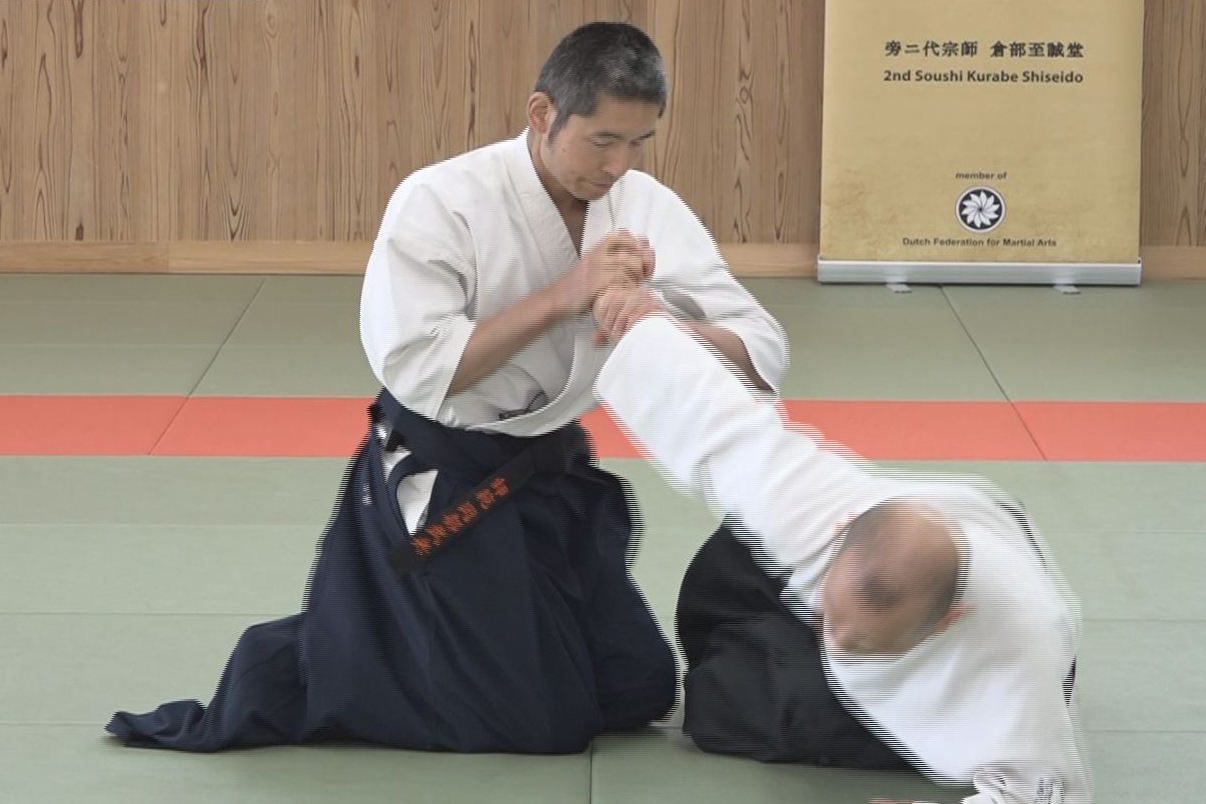
【AIKI Web Course Part 2】Lesson 19 Advanced tech. using T. F. T. #1
-
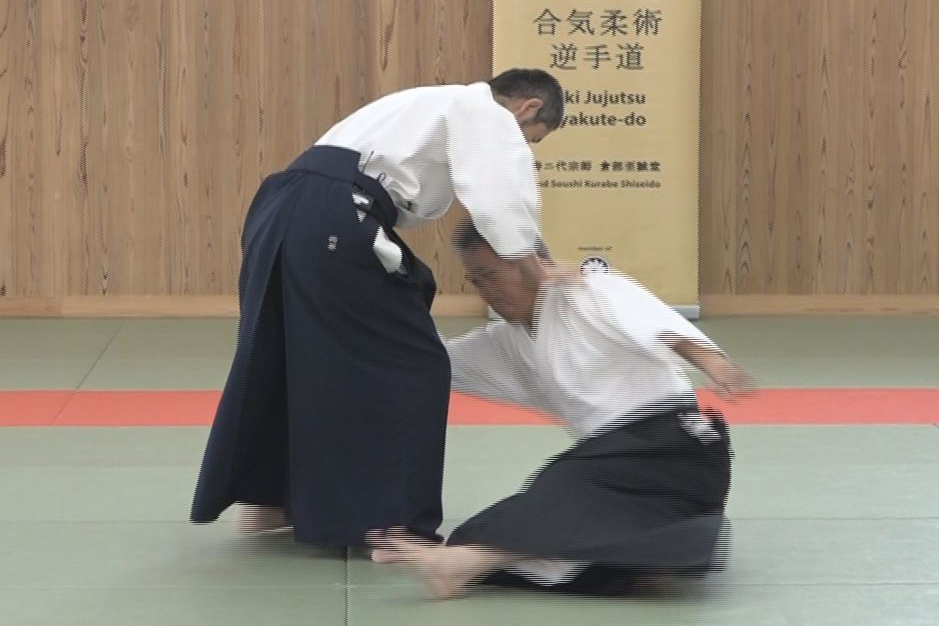
【AIKI Web Course Part 2】Lesson 18 Advanced tech. using AIKI Contact #2
-
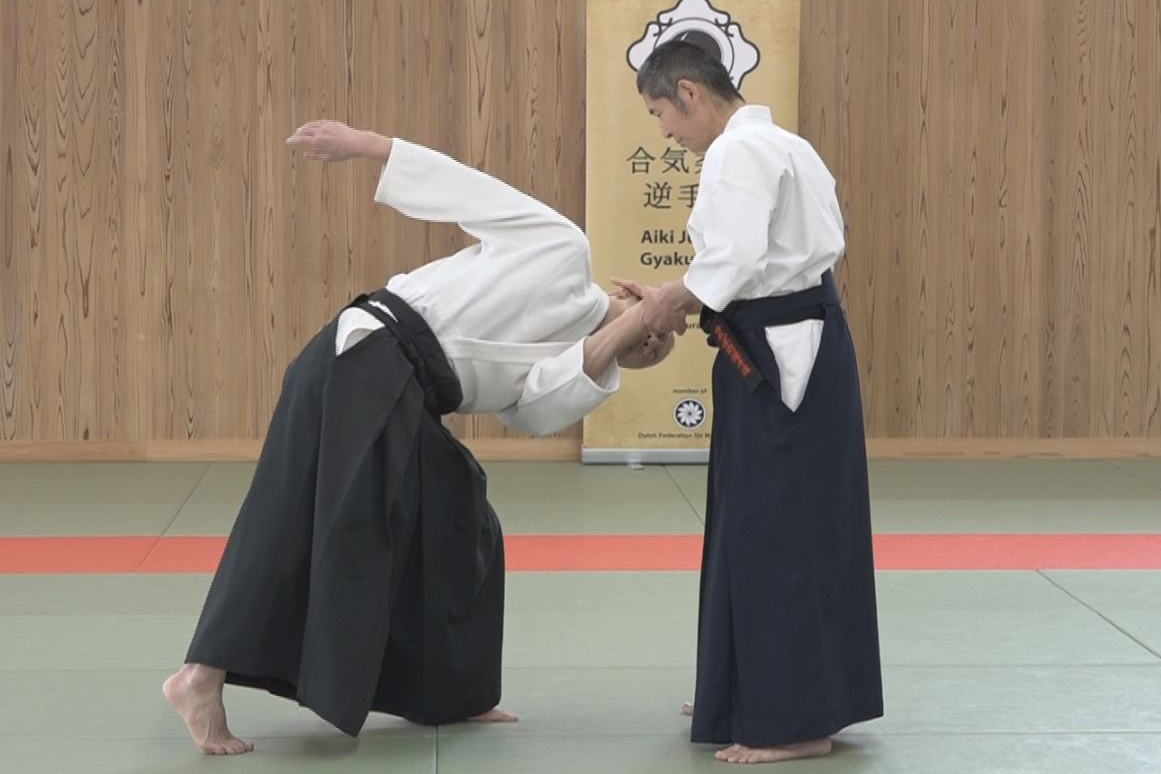
【AIKI Web Course Part 2】Lesson 17 Advanced tech. using AIKI Contact #1
-
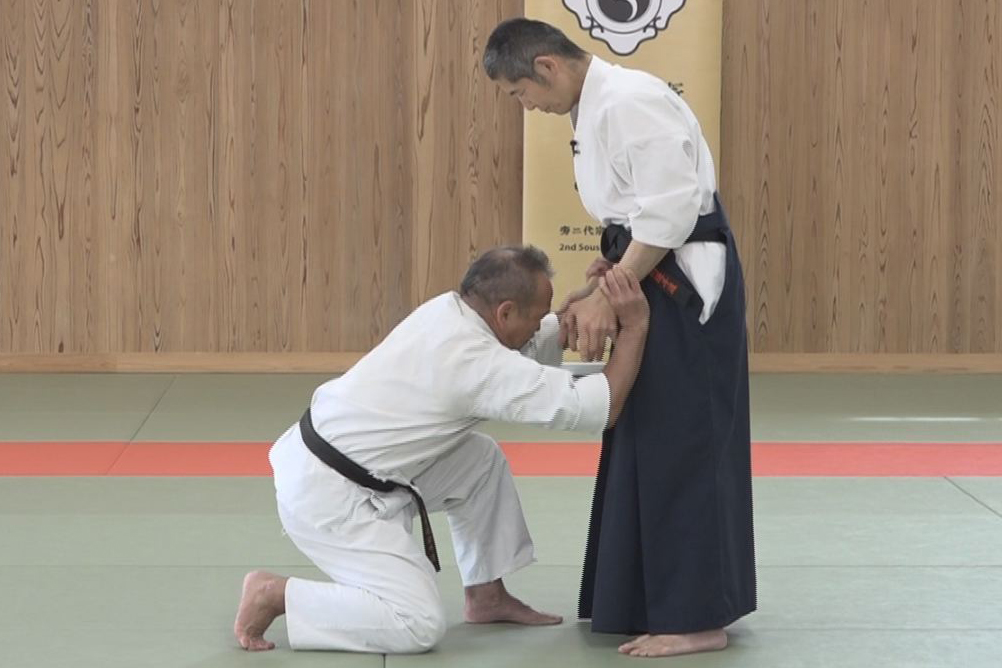
【AIKI Web Course Part 2】Lesson 16 Advanced tech. by Undetectable F.T. #2
-
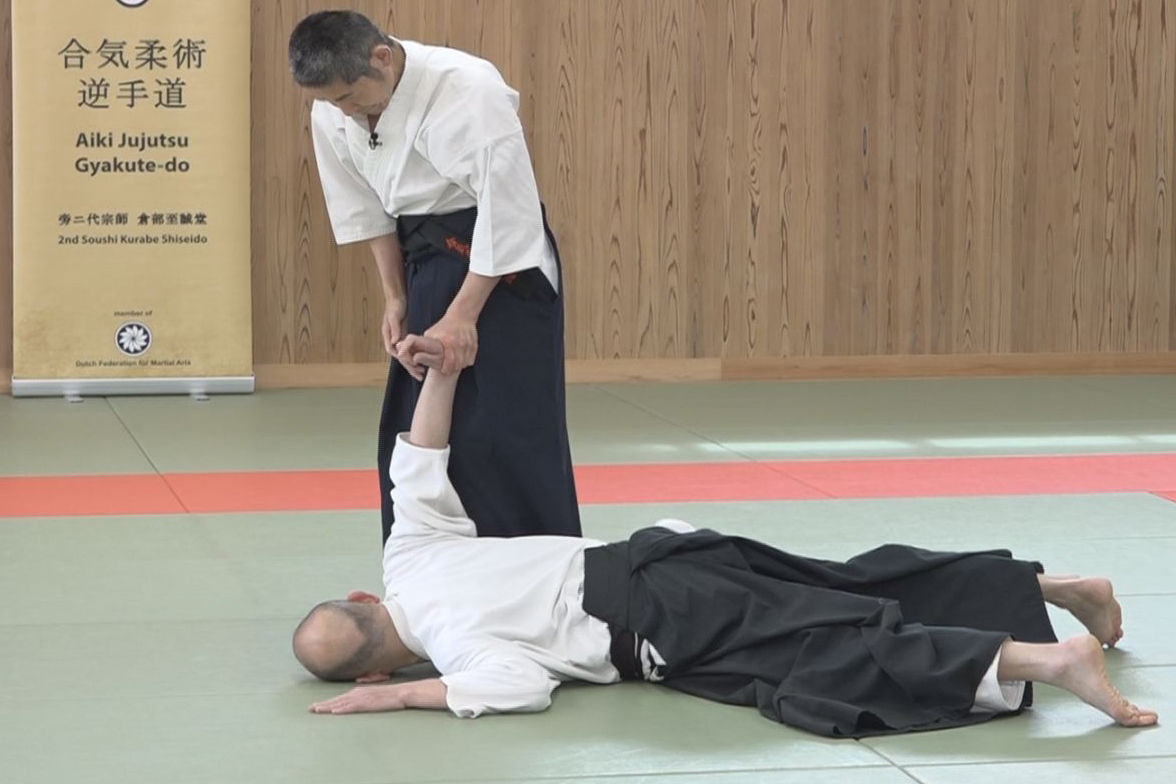
【AIKI Web Course Part 2】Lesson 15 – Advanced tech. by Undetectable F. T. #1
-
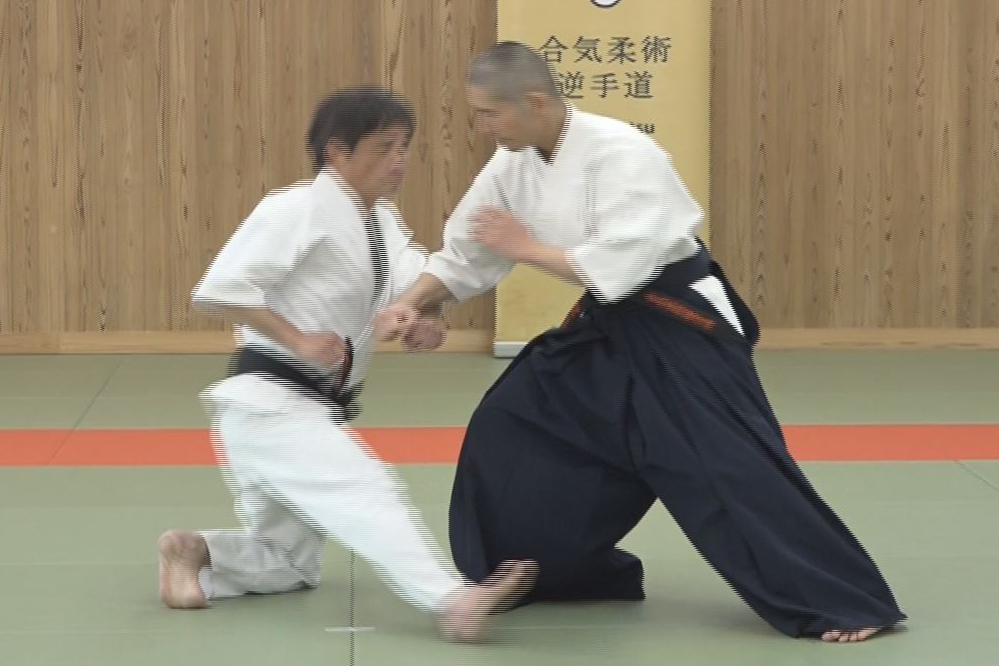
【AIKI Web Course Part 2】Lesson 14 – Advanced tech. by the Waving method #2
-
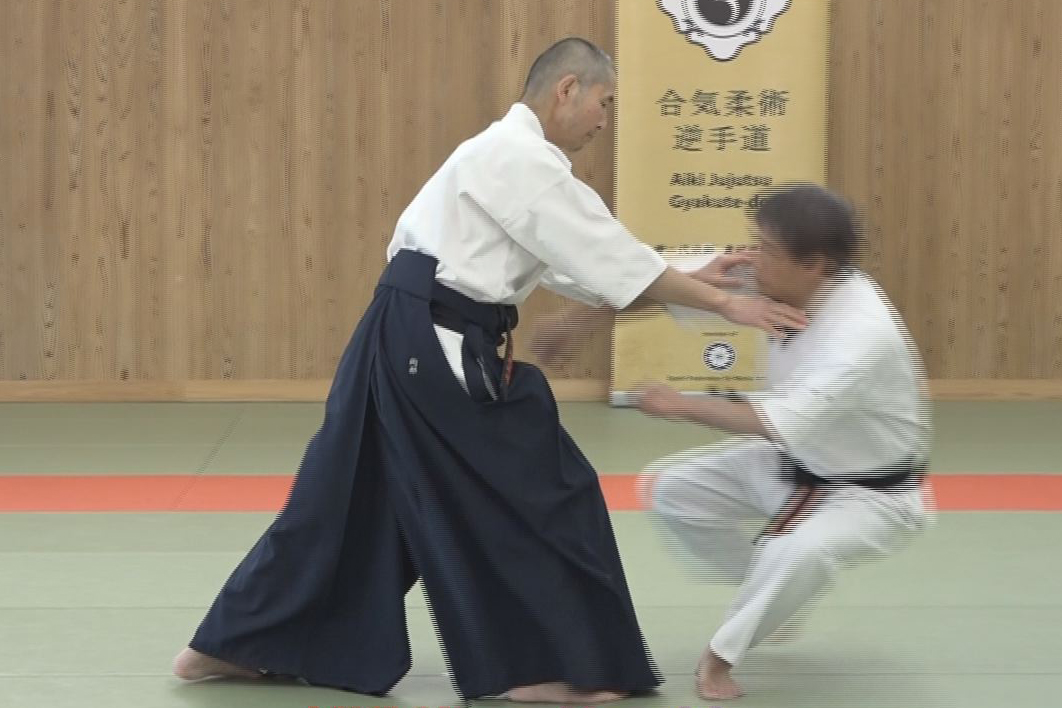
【AIKI Web Course Part 2】Lesson 13 – Advanced tech. by the Waving method #1
-
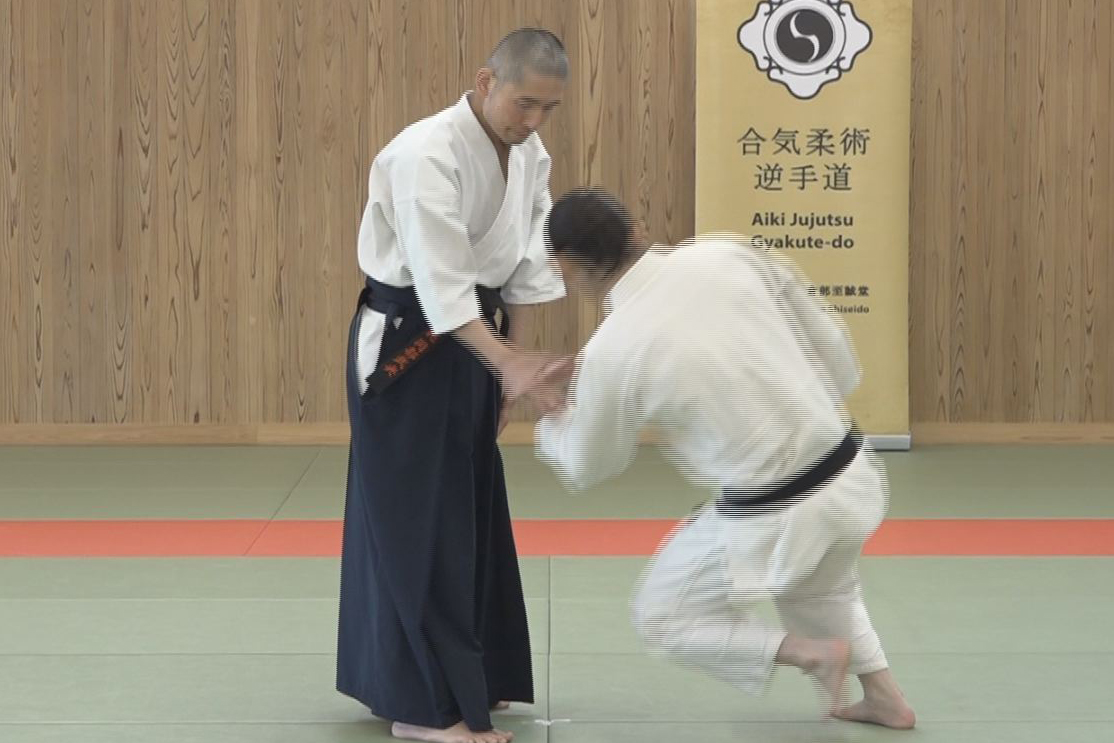
【AIKI Web Course Part 2】Lesson 12 – Gyaku-te by not Using Force nor AIKI
-
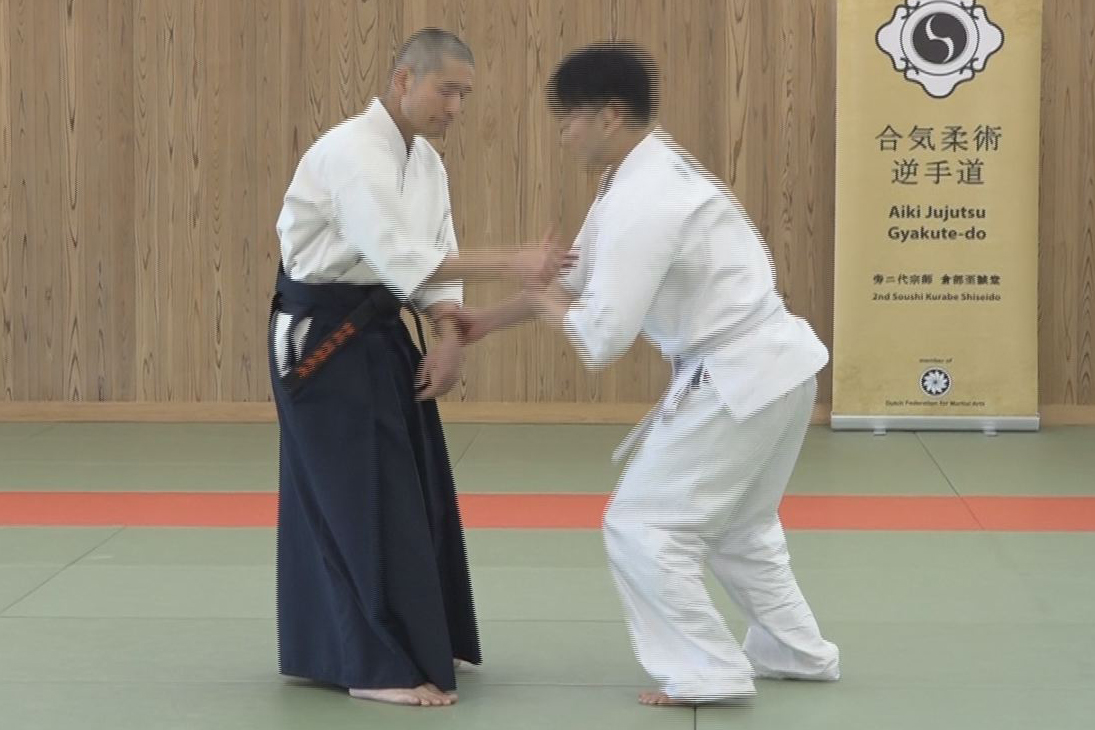
【AIKI Web Course Part 2】Lesson 11 – Gyaku-te Realized by the AIKI Method
-
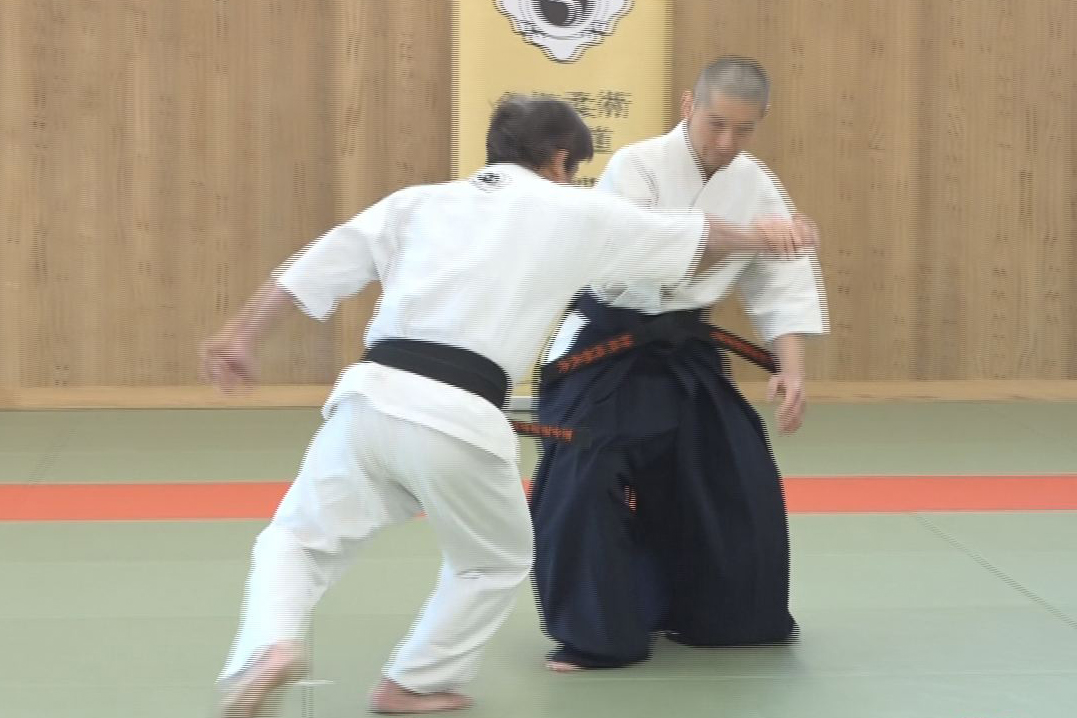
【AIKI Web Course Part 2】Lesson 10 – Application of Force Equilibrium method
-
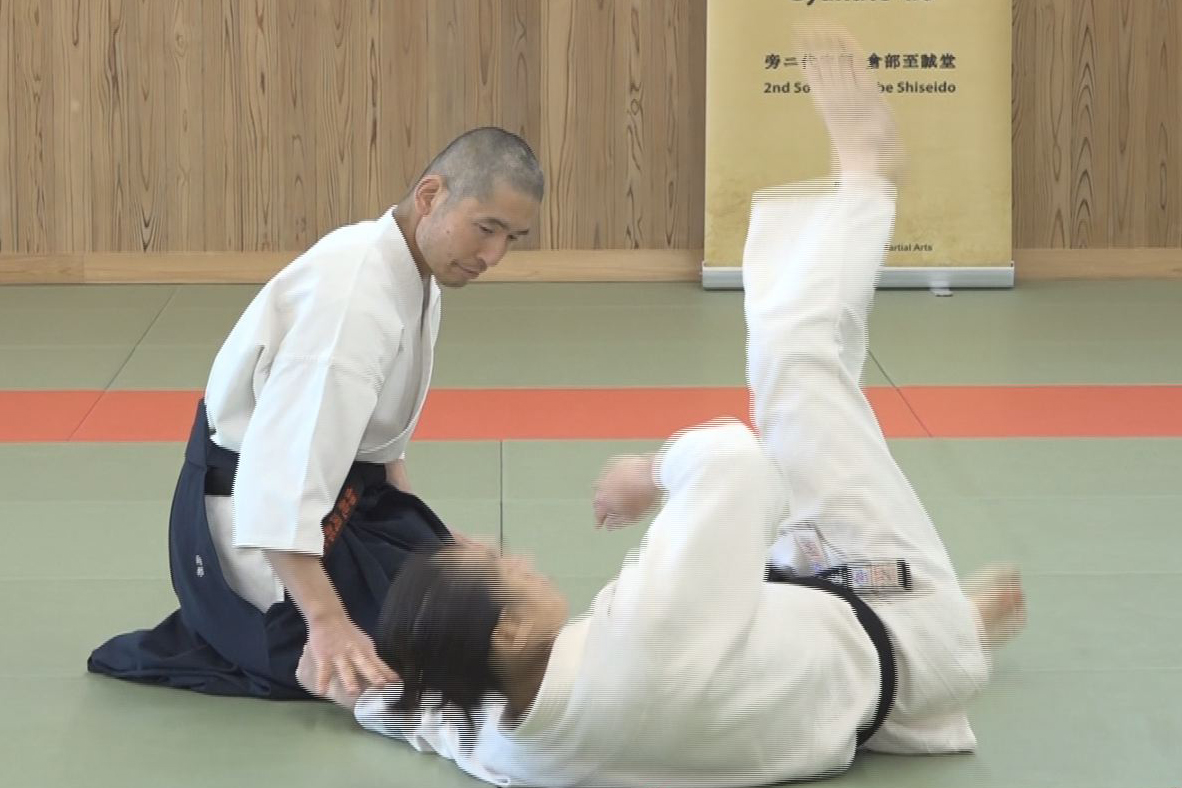
【AIKI Web Course Part 2】Lesson 9 – Force Equilibrium
-
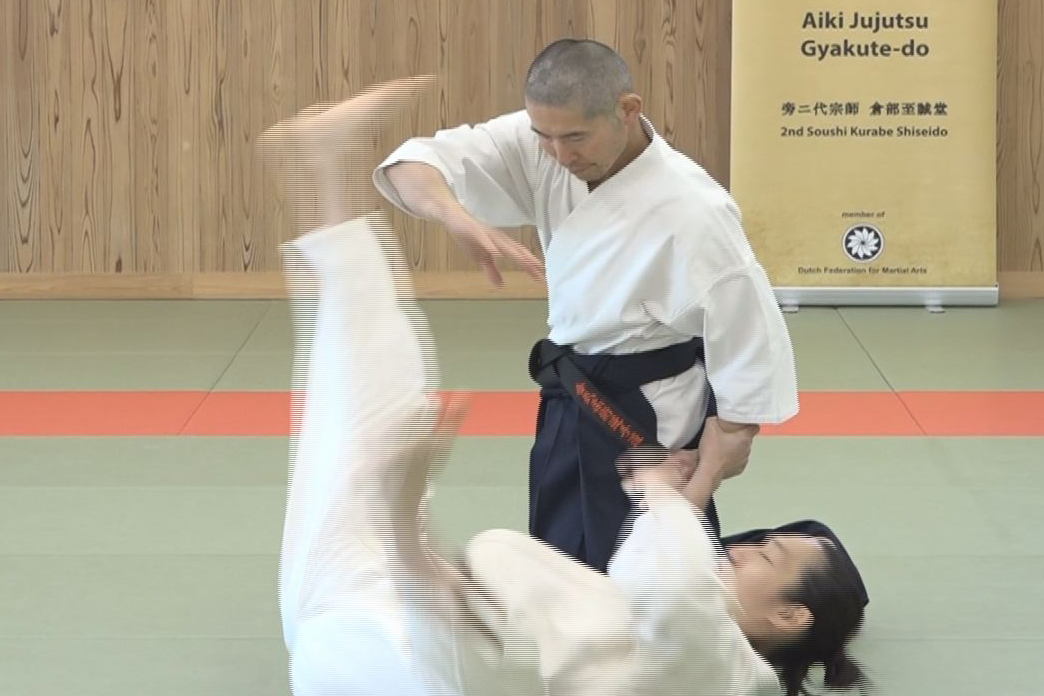
【AIKI Web Course Part 2】Lesson 8 – Application of Targeted Force Transfer
-
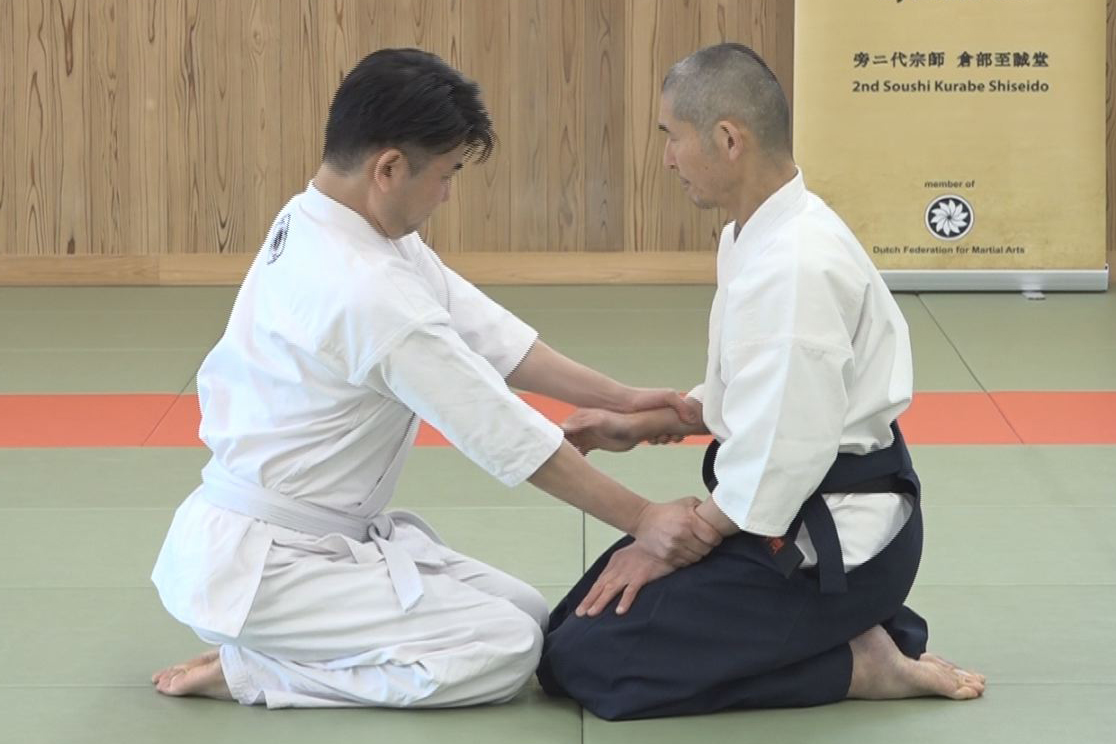
【AIKI Web Course Part 2】Lesson 7 – Targeted Force Transfer
-
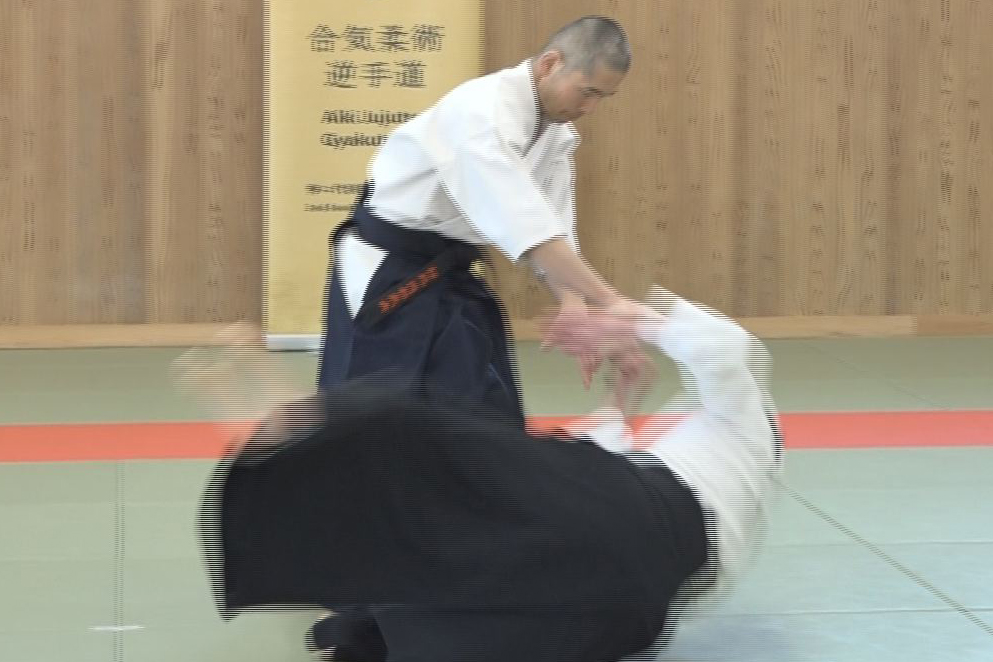
【AIKI Web Course Part 2】Lesson 6 – Application of AIKI Connection
-
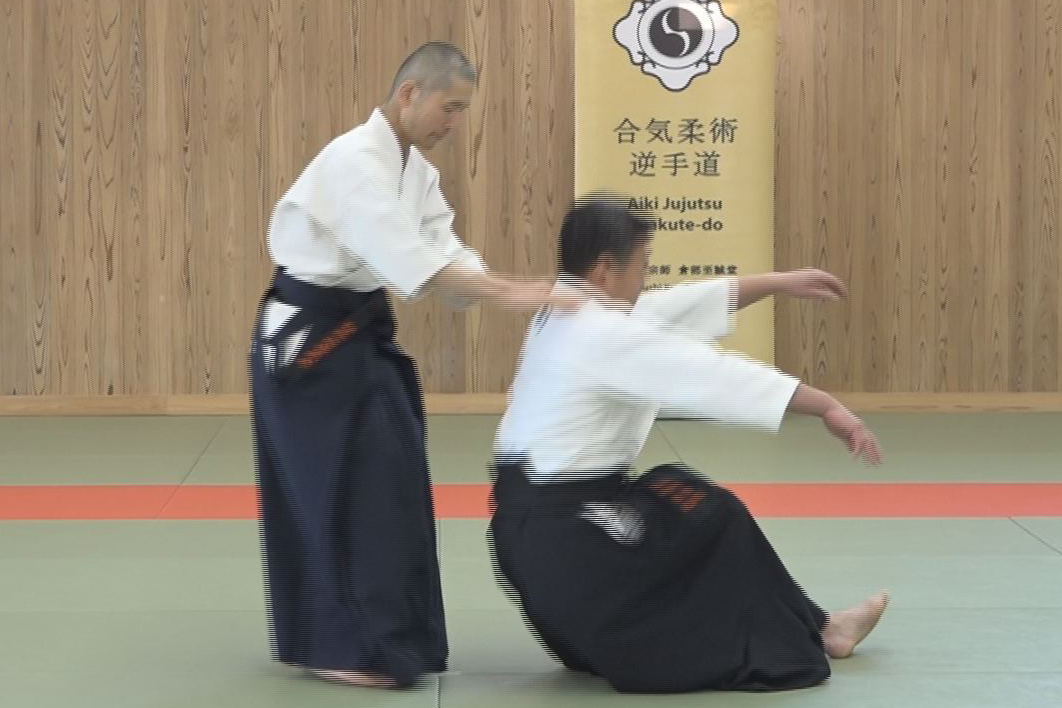
【AIKI Web Course Part 2】Lesson 5 – AIKI Connection
-
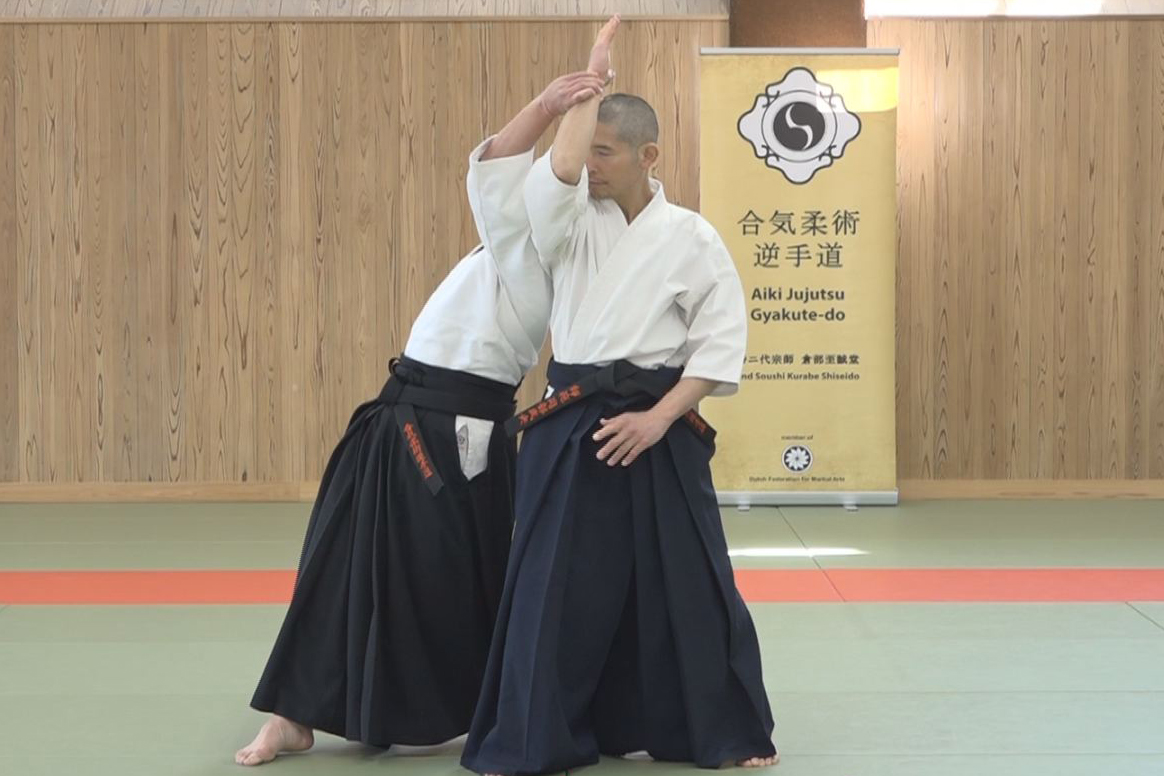
【AIKI Web Course Part 2】Lesson 4 – Application of Nondetectable Force Transfer
-
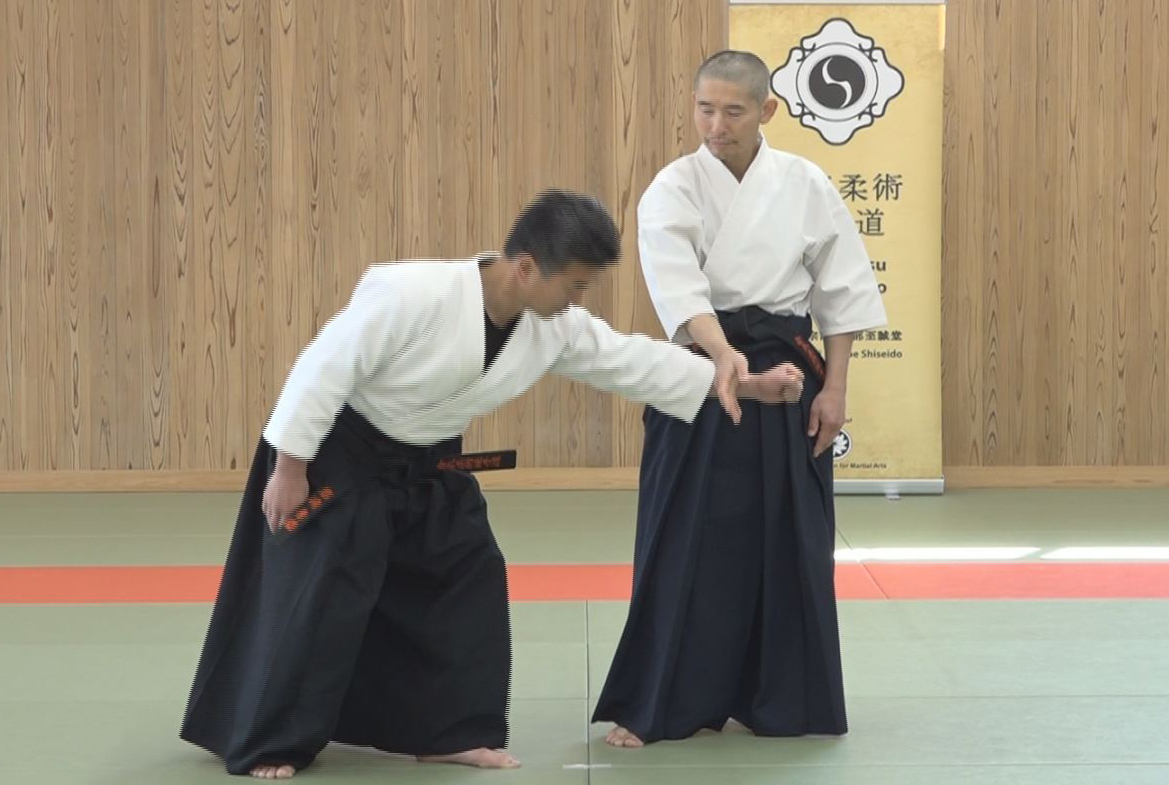
【AIKI Web Course Part 2】Lesson 3 – Explanation of Undetectable Force Transfer
-
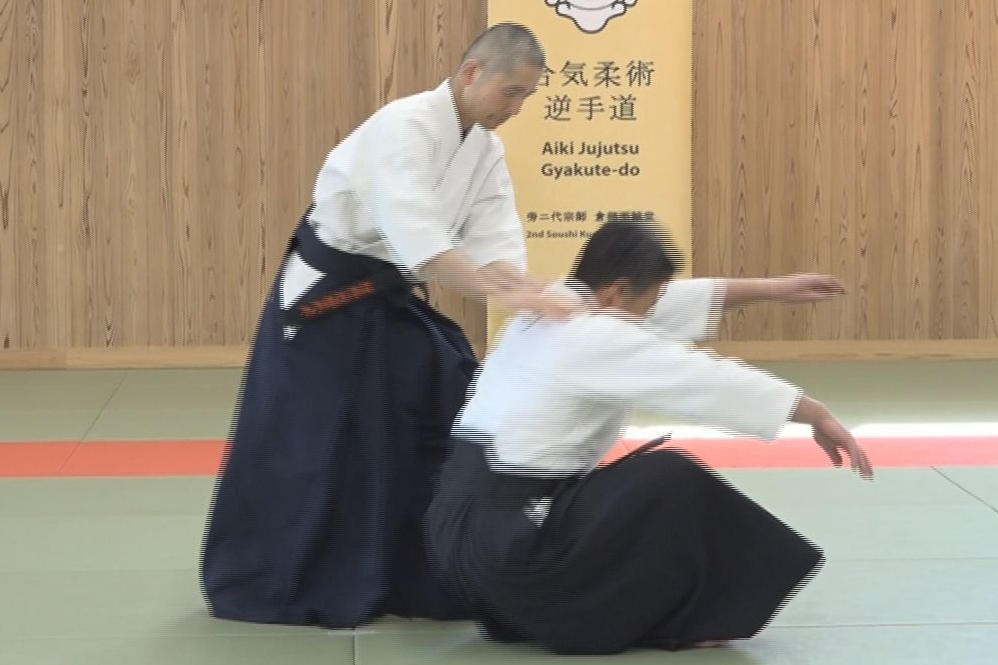
【AIKI Web Course Part 2】Lesson 2 – Application of Waving Method
-
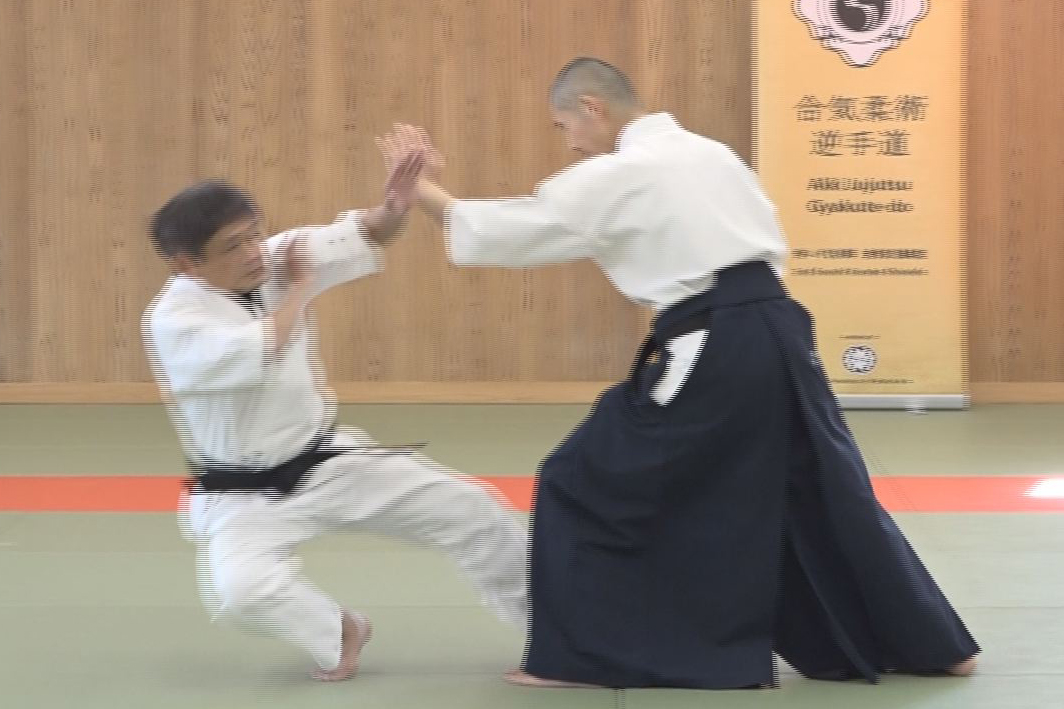
【AIKI Web Course Part 2】Lesson 1 – The Explanation of Waving Method
-
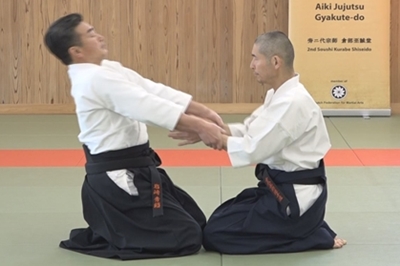
【AIKI Web Course Part 2】Introduction with video


